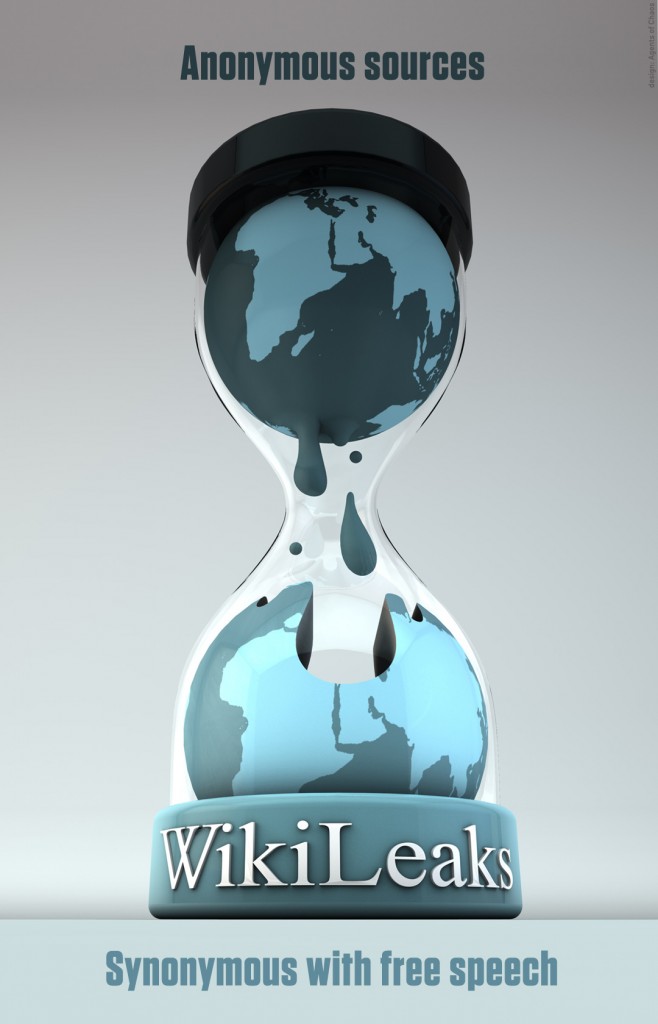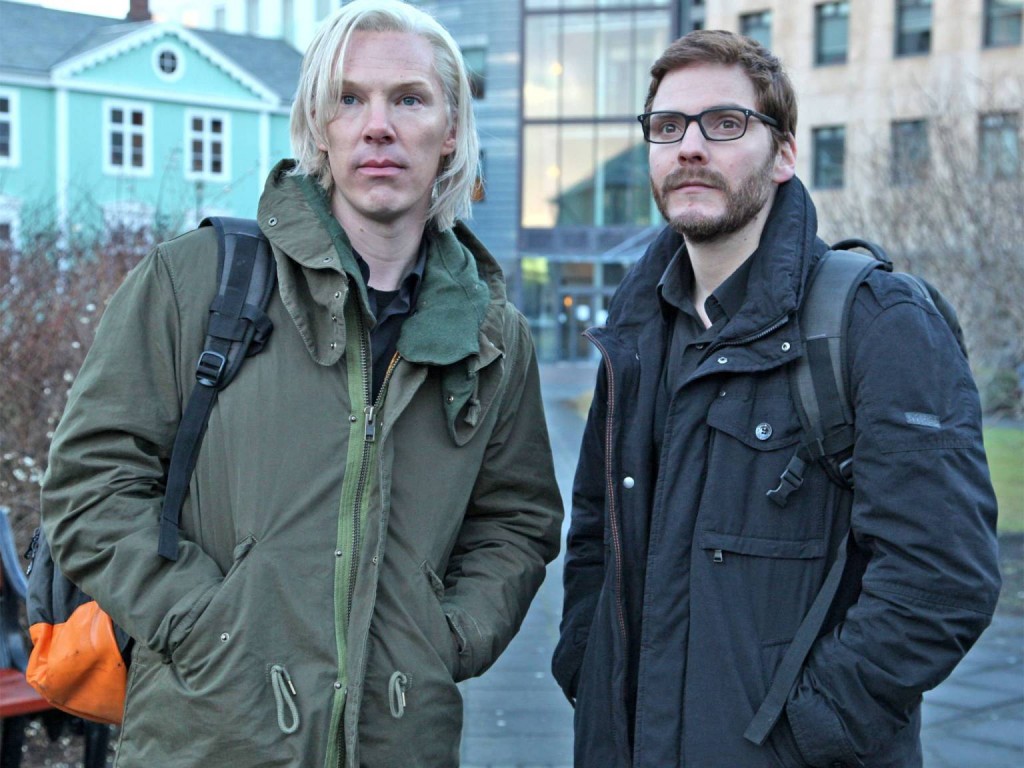

Who the hell is Julian Assange and why does he do all those crazy things he does? Is he an anarchic villain looking to destroy the system or is he a visionary hero who will expose the truth at any cost? Unfortunately, these and many other questions are never truly answered or even exposed by the filmmakers behind The Fifth Estate as it quickly becomes apparent the they don’t know what they want to say about Assange. It doesn’t even seem that they have an opinion on the man and his actions, leaving the film sifting through a difficult subject without tools to uncover anything faintly resembling a revelation.
A Bio-Pic that doesn’t understand its subject can only fail as we only get a glimpse of the man through the eyes of the people around him and their bias shows through. The first half of the film treats Assange’s exploits as important work that halted corruption on a global scale. Assange seeks out the help and support of Daniel Berg (Daniel Brühl) and they work together to expose corruption in African governments and a huge German bank that is skipping on billions of dollars in taxes. This information is gathered and presented on a website called WikiLeaks that allows the whistleblower total anonymity. How does it work? They explain it but not very well. In fact there were many moments of the film that I felt as if you need to be an actual hacker to keep up. It’s ok to dumb it down, it worked for The Social Network.
Once WikiLinks begins to attract some real attention, the stakes heighten fast. Assange gets his hands of classified U.S. war documents and wants to post them on the site, those around him struggle with the decision. There are names in those documents of people in foreign states that assisted the U.S. and their lives would be at stake—there is one such side story of a Dr. Haliseh (Alexander Siddig) fleeing Libya that plays like a watered-down segment from Argo.
Berg refuses to post the documents with the names as Assange wants total transparency, the docs remain whole. But why? What does Assange believes is the accomplished by tearing down a powerful government and exposing the true horrors? Is there a master plan or is it his ego that makes the call as he wants to be the most important kid in the room, kicking over the furniture? You decide.

Director Bill Condon evidently doesn’t want to present the story one way or the other. The first half of the film frames the actions and aspirations of Assange as valiant efforts that were changing the world. Once things get sticky with war logs and cable communications, Condon throws his hands up and takes the material nowhere.
As Assange, Benedict Cumberbatch gives a strong and focused performance. The foundation of the film is squarely on the Brühl’s as his turn as Assange’s cohort is the best in the film. He keeps The Fifth Estate from meandering too much, keeping the momentum as forward moving as possible. This is another film he stole as his was the best work in Rush as well.
The topics that float aimlessly through The Fifth Estate are important ones and deserve more focus and thought that were provided here. These document leaks illustrate the extreme reality of our Information Society. No one can hide because the truth is so easy to get to. The question is should we lift the rug and see what waits beneath simply because we can? This is changing the world and we deserve (and must) have a meaningful dialogue about it before we tear the whole thing down without even knowing what side we are on.


